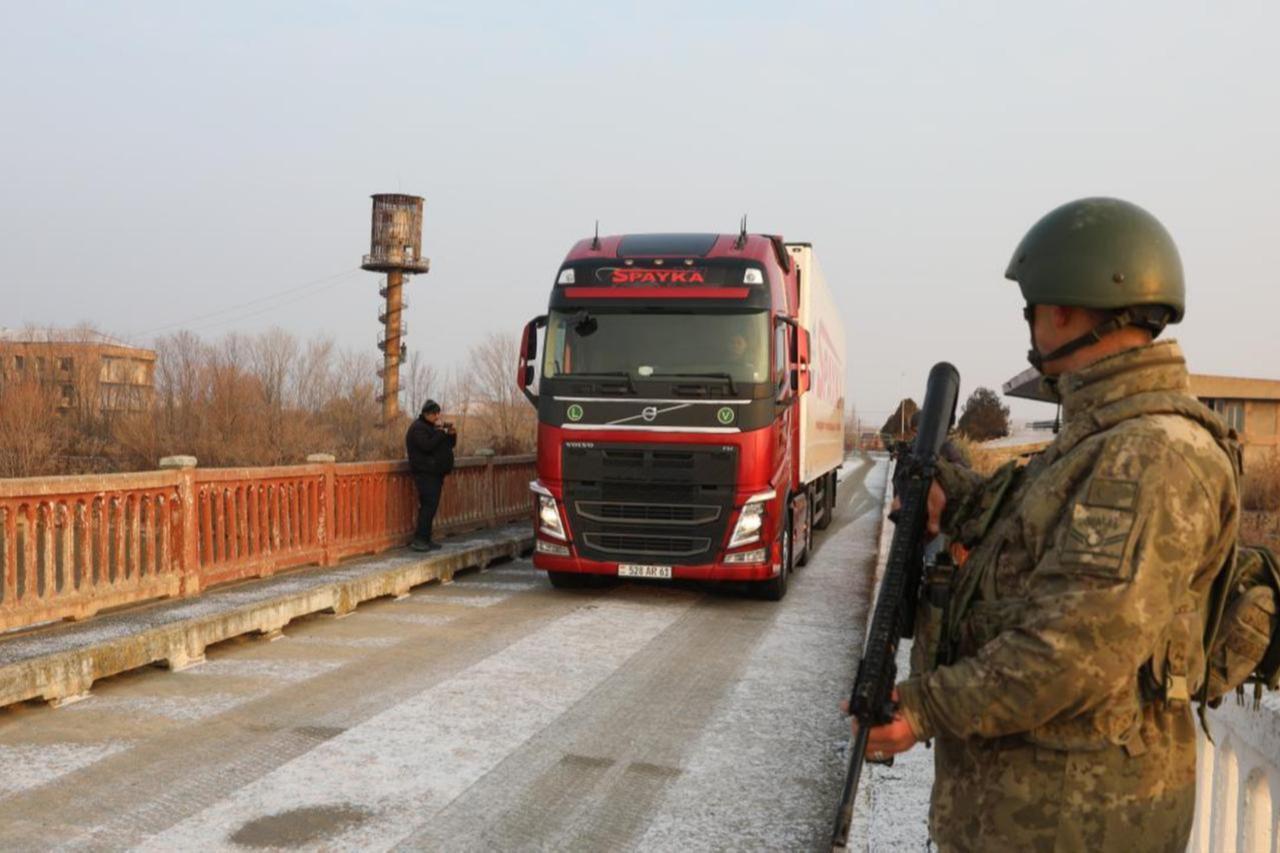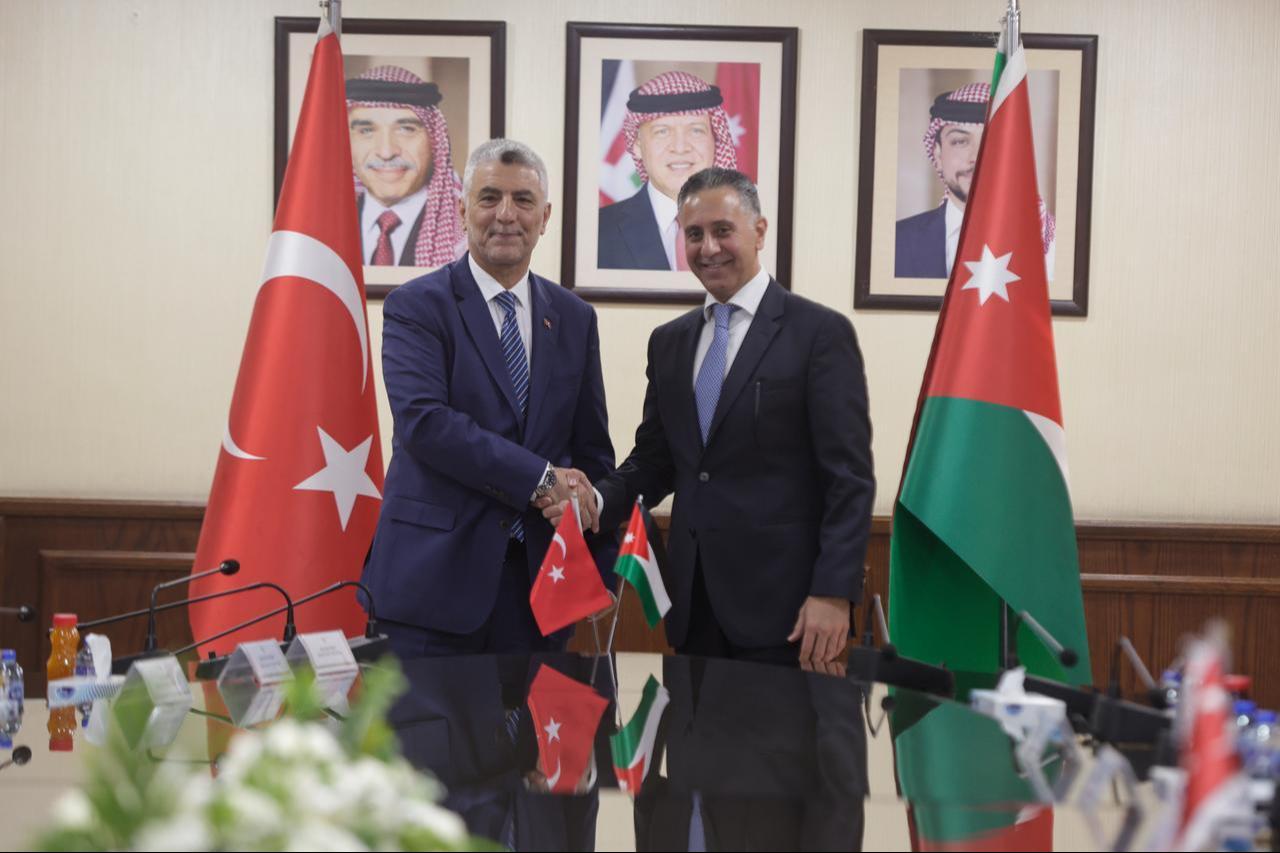
Turkish Trade Minister Omer Bolat announced that the road corridor enabling Turkish trucks to reach Jordan and Gulf countries via Syria will become fully operational next year once the remaining issues within Syria are resolved.
Speaking after visiting the Turkish Martyrs’ Cemetery in Salt, Jordan, following the Türkiye-Jordan Joint Economic Commission (JEC) Meeting in Amman, Bolat said the corridor will open after completing customs, visa, and road rehabilitation procedures in Syria.
“The transit transport agreement between Türkiye and Syria was signed by both countries’ transport ministers in Istanbul on June 28,” he said.
“Currently, Turkish trucks can reach Jordan and the Gulf through Syria. There are still issues like customs arrangements, road rehabilitation, and visa procedures that are being addressed. Hopefully, the corridor will be fully operational next year.”
Bolat noted that the signing of the road transport agreement between Türkiye and Syria has generated great excitement in Jordan.
“This route connecting Türkiye and Europe through Jordan and Syria is a vital trade corridor,” he said.
“Similarly, for us, the road stretching from Türkiye through Syria, Jordan, Saudi Arabia, the Gulf countries, and Egypt is a key transport route to the Middle East. Once we revive these roads and railways as before 2010, trade and people’s prosperity will rapidly increase.”
Bolat said President Recep Tayyip Erdogan had given “clear instructions” to further develop trade relations between Türkiye and Jordan.

Bolat highlighted that both Türkiye and Jordan are eager to repair and modernize the historic Hejaz Railway. “Work is progressing rapidly.
There is coordination with the Jordanian side. These decisions require cooperation with all relevant authorities, and we are working to ensure that,” he said.
“The historic Hejaz Railway will be reactivated, not only for freight but also for passenger transport,” Bolat added.
He emphasized the strong interest and affection toward Türkiye in Jordan, saying, “We will work hard to honor this by further strengthening economic relations between the two countries.”
Bolat noted that this visit marked the first official ministerial-level meeting between Türkiye and Jordan since the COVID-19 pandemic. “We held the first Türkiye-Jordan Joint Economic Commission meeting after a long break,” he said.
“Our technical teams arrived earlier and worked with their counterparts to identify joint initiatives across trade, industry, agriculture, services, tourism, and culture.”
He added that a memorandum of understanding outlining future agreements and activities was signed, serving as “a roadmap for upcoming cooperation.”
Future agreements are expected to be signed at a leaders’ summit between President Erdogan and Jordan’s King Abdullah.
Bolat said a large Turkish business delegation, including Türkiye-Jordan Business Council members, held productive meetings with Jordanian counterparts and participated in a business forum attended by both trade ministers.

Bolat stated that Türkiye and Jordan are “brotherly and friendly countries” with close coordination between their leaders.
“The bilateral trade volume reached $1.1 billion in 2024 and exceeded $1.4 billion in the first nine months of this year. We expect it to surpass $1.5 or even $1.6 billion by the end of the year,” he said.
“Our goal is to accelerate economic integration between Türkiye and Jordan. Work to revive the Hejaz Railway has already started,” he added.
Bolat also noted that Turkish contractors were invited to participate in Jordan’s $15 billion development and infrastructure projects starting next year, including major water and railway projects.
“They are very satisfied with Turkish contractors, who have completed about 60 projects worth $2.3 billion so far,” he said.
He added that tourism ties are also strong, with over 30 weekly flights between the two countries.
“The Jordanian people love Türkiye, Turks, and our President. There is strong interest in Turkish products in Jordanian markets,” Bolat said.